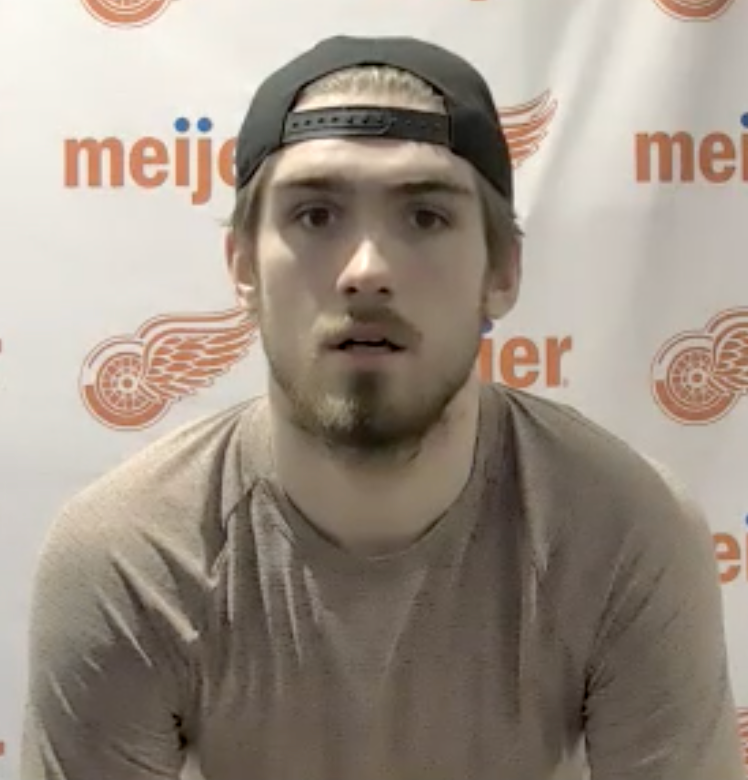Ted Kulfan | The Detroit News

The NHL knew conducting this season amid a pandemic would be a challenge.
With approximately 20 percent of the schedule completed, it’s proving to be a difficult test.
Colorado and Minnesota have been the latest teams to be hit hard by COVID-19, having seasons essentially grounded temporarily. Buffalo and New Jersey were teams affected by the virus recently, their seasons paused.
The Red Wings haven’t had any games cancelled or postponed. But having had five regulars out of the lineup and on the COVID-19 protocol list for most of January certainly weakened the roster and resulted in a long losing streak.
The Wings likely contracted the virus playing Carolina on the season-opening weekend (Jan. 14-16), as the Hurricanes saw their schedule paused the next week after a slew of confirmed cases.
Nobody was, or is to blame, said coach Jeff Blashill, who feels the NHL and individual clubs are doing all they can in a monstrous fight.
“That’s just the reality of testing being delayed, it’s really hard to avoid (contracting the virus),” Blashill said. “It didn’t spread with our team any more than that. We’ve enforced protocols that have been in place to make sure we mitigate any further spreading.
“Our staff and players did a real good job.”
Playing hockey inside in a rink, said Blashill, has its owns unique issues during this pandemic.
“The problem with hockey is we played in a rink where the humidity is dry and the air is cool, and my understanding, with the research I’ve done, that potentially lets that virus sit right there in the air and it doesn’t dissipate,” Blashill said.
“So one team has it and you play a game, it’s hard. You don’t get an instant (test) result that is reliable. The fact that games are getting postponed is unfortunate, but from our perspective we just got to keep trying do the best we can with the protocols.”

Wings’ Filip Zadina on missing seven games with COVID-19: ‘I was losing my head’
Red Wings forward Filip Zadina will return to the lineup in Tampa Bay tonight after missing seven games because of COVID-19.
In announcing a new set of preventative measures, commissioner Gary Bettman said the NHL will continue to proceed with caution.
“We are mindful of the fact that we might be seeing a more aggressive transmission of the virus and will continue to make adjustments to our protocols as we consult on a daily basis with, and adhere to, the recommendations of our medical advisors,” Bettman said in a statement.
“It is important to note that, while we have seen almost 100 players enter our COVID protocols, fewer than half have done so because of confirmed positive tests – and, among that group, many have not been symptomatic.
“Our priority has been and will continue to be to act conservatively with an abundance of caution, understanding that there are many things about the transmission of COVID-19 that are still being discovered.”
Among the NHL’s new implementations:
►Removal of shielding behind benches: This will allow for air flow to more easily move away from the benches where players and coaches are in close proximity to one another. The seating area in sections behind the glasses on the lower level may not be occupied by anyone, including fans in arenas where they are permitted to attend games.
►Physical distancing in team spaces: To reduce to the extent possible the number of players in a room at the same time, each team will take steps to utilize (or create where necessary) additional locker room space for the home and visiting teams, such that physical distancing of a least six feet between players at each of their stalls is maintained.
►Air filtration and cleaning: The league is considering adoption of a requirement for teams/arenas to deploy portable air cleaners with HEPA behind the bench areas, in order to improve indoor air quality and mitigate airborne viral transmission.
►Limiting time at the arena: In order to minimize (to the extent practical) the period of time for possible exposure and transmission of COVID-19 while players are gathered at the arena, players and coaching staff are being advised, whenever practicable, to arrive at the arena no more than 1 hour and 45 minutes before puck drop, except to receive necessary treatment or to engage in preparations in advance of the game.
►Virtual meetings: On game days (and non-game days), meetings shall be conducted virtually, to the greatest extent possible, and players should leave the arena as quickly as possible after the conclusion of each game.
For the first time this season, the Wings haven’t had any players on the COVID protocol list the past two days.
ted.kulfan@detroitnews.com
Twitter: @tkulfan